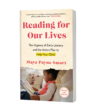Syringe. Fluorescent. Privilege. Spellings for words like these don’t exactly roll off the tongue. Their silent, ambiguous, and unusual letters create mismatches between print and pronunciation that often lead to misspellings. So what’s a speller to do?
I say, focus on every letter, identify the unexpected bits, and create a special pronunciation of your own that makes the letters easier to remember. Don’t use the alternative pronunciation in conversation, but lean on it all you want when writing. It’s just another bit of adhesive to stick the word in memory.
As an elementary school student, I often overpronounced words with tough-to-recall spellings when writing. For example, Wednesday always sounded more like windsday to me, putting me at risk of misspelling it. I knew this and would exaggerate the pronunciation to wed-nes-day (in my head) to help me spell it correctly. (I may or may not still do this today.)
Turns out. “Spelling pronunciations” are a thing. Many people slightly alter words’ pronunciations to better reflect their spellings when writing. And you would be smart to do so—and teach your kids to do so—because it works.
Researchers have studied the so-called spelling pronunciations and found that they are effective mnemonic devices (memory aids). The strategy helps kids (and adults) to learn commonly misspelled words. And the method is particularly powerful for poorer spellers.
The speller holds two pronunciations in mind—the conventional one used in speech and a second one that’s a crutch for spelling. The latter pronunciation is essentially an attention device. It helps spellers focus on all the letters in a spelling. It boosts memory of letters that don’t map to sounds at all or in the expected manner.
The takeaway? Explicitly teach kids to use spelling pronunciations. It’s not the end-all-be-all of spelling strategies, but it’s a worthy addition to all of our toolkits. It takes an arsenal.

Sources and Further Reading
Ocal, Turkan and Linnea C. Ehri, “Spelling pronunciations help college students remember how to spell difficult words,” Reading and Writing 30, 5 (May 2017): 947-967
https://www.thoughtco.com/schwa-vowel-sound-1691927


